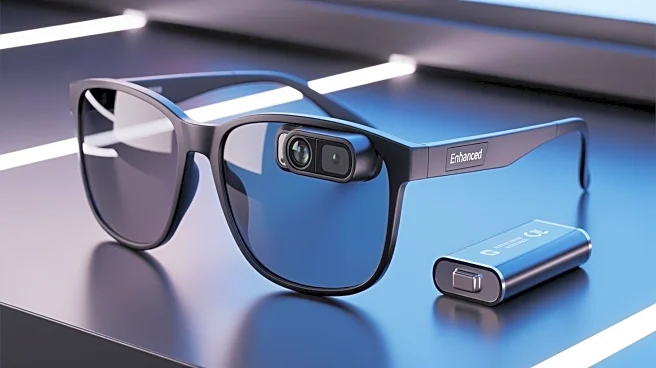What's Happening?
Meta has released the second-generation Ray-Bans smart glasses, featuring significant upgrades aimed at content creators. The new model includes a 12MP camera sensor capable of capturing 3K resolution
video at 30fps and 1080p at 60fps, addressing previous issues of noise and color accuracy. Additionally, the glasses offer improved image stabilization, reducing shakiness during recording. Battery life has been extended to six hours of continuous audio playback, a notable improvement from the previous model's four-hour rating. Despite these enhancements, the core experience remains similar to the first-generation glasses, which are still available at a lower price.
Why It's Important?
The introduction of enhanced smart glasses by Meta represents a significant step in wearable technology, particularly for content creators seeking high-quality video capture without compromising convenience. The improvements in camera resolution and stabilization cater to the growing demand for portable, high-performance recording devices. However, the reliance on Meta's services, including AI features and data policies, may raise privacy concerns among users. The competitive pricing strategy, with the older model still available, offers consumers options based on budget and feature preferences, potentially influencing market dynamics in the wearable tech sector.
What's Next?
As Meta continues to refine its smart glasses technology, further advancements in AI integration and user experience are anticipated. The company may face competition from other tech giants, such as Alibaba, which are also developing smart glasses with similar capabilities. Consumer feedback and market performance during the holiday season will likely influence future iterations and pricing strategies. Additionally, ongoing discussions around privacy and data usage may prompt Meta to address user concerns more transparently.
Beyond the Headlines
The development of smart glasses with advanced features like live translation and celebrity-emulated voices highlights the intersection of technology and everyday life, potentially transforming how users interact with digital content. Ethical considerations regarding data privacy and targeted advertising remain critical as wearable technology becomes more integrated into daily routines. The evolution of smart glasses may also impact cultural norms around photography and video recording, as discreet capture becomes more prevalent.











